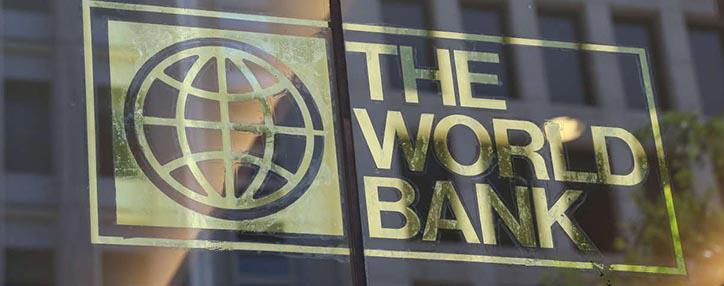Raising taxes is necessity for Armenian government - World Bank expert says
20.06.2016,
12:11
World Bank Armenia Office programs co-coordinator Gohar Gulumyan endorsed Armenian government-drafted new tax code, which calls for higher taxes on fuel, alcohol and tobacco, saying the measure is a necessity.

YEREVAN, June 20. /ARKA/. World Bank Armenia Office programs co-coordinator Gohar Gulumyan endorsed Armenian government-drafted new tax code, which calls for higher taxes on fuel, alcohol and tobacco, saying the measure is a necessity.
The new tax legislation, adopted with a vote of 68 to 21 and 18 abstentions by the National Assembly of Armenia in the first reading last week despite strong objections from the opposition and even the ranks of the ruling Republican Party of Armenia, raises the income tax rates for workers earning 120,000 drams ($250) or more per month from 26 to 28 - 33 percent.
Income tax rates for those who earn at least 2 million drams would be downed from 36 percent to 33 percent. Workers who earn less than 120,000 drams a month would have their income tax rates cut from 24.4 percent to 23 percent.
Speaking to ARKA, Ms. Gulumyan said the government’s decision to reconsider its tax policy is forced by the overall macroeconomic situation in the country and the state of the budget. According to her, the problem is not to fill the budget. ‘The macroeconomic situation in Armenia is such that low economic growth rates make the situation alarming," she said.
She recalled that in recent years the spending deficit was covered by external borrowing that was happening against the background of low growth of exports, which last year amounted to 3.4%, making it difficult for the government to repay the loans.
"Not only for the development of the country, but also for the maintenance of living standards, we must look for other sources to offset the impact of dwindling external financial flows. In particular, remittances slashed by 30%. The government should mobilize the available internal resources. If it does not, the country will face a big financial gap. There is no alternative," said Gyulumyan.
In her words, the new Tax Code is drafted in such a way as to affect the poor and low-profit businesses the least. "The current manner of income taxation is completely wrong as 80-85% of income taxes are paid by people receiving the minimum wage," Gyulumyan said.
Armenian budget revenues in 2015 amounted to 1.167 trillion drams, down from projected 1.191 trillion drams. The budget expenditures stood at 1.409 trillion drams or 27.9% of GDP, while budget deficit to GDP ratio was 4.8%, up from 1.9% in 2014. ---0---
The new tax legislation, adopted with a vote of 68 to 21 and 18 abstentions by the National Assembly of Armenia in the first reading last week despite strong objections from the opposition and even the ranks of the ruling Republican Party of Armenia, raises the income tax rates for workers earning 120,000 drams ($250) or more per month from 26 to 28 - 33 percent.
Income tax rates for those who earn at least 2 million drams would be downed from 36 percent to 33 percent. Workers who earn less than 120,000 drams a month would have their income tax rates cut from 24.4 percent to 23 percent.
Speaking to ARKA, Ms. Gulumyan said the government’s decision to reconsider its tax policy is forced by the overall macroeconomic situation in the country and the state of the budget. According to her, the problem is not to fill the budget. ‘The macroeconomic situation in Armenia is such that low economic growth rates make the situation alarming," she said.
She recalled that in recent years the spending deficit was covered by external borrowing that was happening against the background of low growth of exports, which last year amounted to 3.4%, making it difficult for the government to repay the loans.
"Not only for the development of the country, but also for the maintenance of living standards, we must look for other sources to offset the impact of dwindling external financial flows. In particular, remittances slashed by 30%. The government should mobilize the available internal resources. If it does not, the country will face a big financial gap. There is no alternative," said Gyulumyan.
In her words, the new Tax Code is drafted in such a way as to affect the poor and low-profit businesses the least. "The current manner of income taxation is completely wrong as 80-85% of income taxes are paid by people receiving the minimum wage," Gyulumyan said.
Armenian budget revenues in 2015 amounted to 1.167 trillion drams, down from projected 1.191 trillion drams. The budget expenditures stood at 1.409 trillion drams or 27.9% of GDP, while budget deficit to GDP ratio was 4.8%, up from 1.9% in 2014. ---0---



